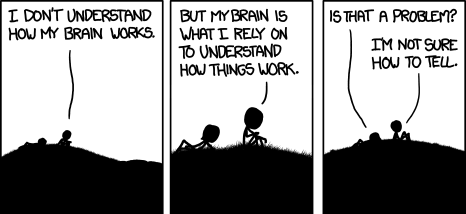Gym - various weight exercises, Time - 50m
In some ways Day 4’s post about staying in the present was a bit of a tease because one of the key techniques of the Stoics was pre-visualisation: they anticipated the future in order to prepare for it. This is the same as rudimentary sports psychology, the thing most players do before they set foot on the pitch, but there is a slight twist. The sportsman imagines themselves succeeding: the striker pictures themselves scoring a goal and the the runner sees themselves crossing the finishing line strong and triumphant. However the Stoic technique turns this on its head and imagines the worst. It has another name: the premeditation of evil and it is done by imagining the things you hold most dear being taken away from you.
There are three reasons for it. The first is basic honesty. All things are temporary, everything comes and goes and it is an undeniable truth that at some time you and I will both die. It is foolish to close ones eyes and try to forget it will happen as sooner or later you will have to face up to these things. This leads on to second reason: by mentally preparing for loss you are better able to cope when it happens. The third reason though is not about the future it is about the present and is perhaps the most important reason of all: if you think something might be gone you are likely to appreciate it more keenly. If you were given a good bottle of wine told “After this you will be giving up alcohol for good.” The chances are that you would savour the drink, stretch it out, try to taste every drop and remember it. In other words you would closer attention than if it was just another bottle with just another meal.
“As you kiss your son good night, says Epictetus, whisper to yourself, “He may be dead in the morning.’
Don’t tempt fate, you say.
By talking about a natural event? Is fate tempted when we speak of grain being reaped?”
(Marcus Aurelius, Meditations XI 34)
This might sound a bit extreme but the important thing is that it should not mawkish. It is an exercise in appreciating what you have, not an excuse for sentimentality and it should not be a cause of worry and anxiety, i.e. an unreasonable fear of imminent disaster. We not want to end up like Private Frazer of Dad’s Army.
But what is the relevance of this to going to the gym?
It is that, along with a number of other things, I take it for granted. I do it because it suits my purpose and think of it in functional terms. I give no thought to the fact that I am able to run on the treadmill and lift the weights. In this respect I am careless and instead of thinking I should be faster or stronger, I should appreciate what I can do. Being healthy is a colossal blessing and something that should never be underestimated. I once read of a survey which asked two linked questions: what would make you happy and what would make you unhappy. The answers for the first was the usual mix: more money, better car, house, holidays,love, job etc however what almost everybody thought would make them the unhappiest was illness. Nowhere on the list of things that make you happy was health mentioned, yet it was the thing you would miss the most. It is not a mistake a stoic would make as they would have already pre-visualised its loss and what it would mean.
In the gym I have reminders to help me. For example a man, partially paralysed down one side, who is constantly working building on the strength he has. Another man who can hardly walk and is helped onto each machine by his wife, will still smile and there is a lady who can barely shuffle but keeps plugging away on the treadmill. I am in awe of all them, as I am of anyone who keeps going in the face of great difficulty. In an instant, by a stroke of fate I could be struck down and face the same battles. Would I be as strong?
I don’t know. It is something I would have to face if it happened. In the meantime it behoves me to appreciate what I have.





